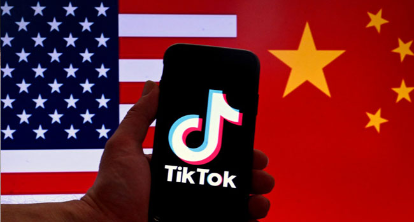
Elon Musk, the world’s richest person and a close advisor to US President Donald Trump, has ruled out any interest in acquiring TikTok’s US operations, despite speculation surrounding the platform’s future.
“I’ve not put in a bid for TikTok and I don’t have any plans for what I would do if I had TikTok,” Musk said via videolink at a German forum in late January, comments that were released over the weekend.
TikTok is facing mounting pressure from US lawmakers, who have passed a law demanding its Chinese parent company, ByteDance, either divest from the platform or face a nationwide ban over national security concerns. The law, which was set to take effect just before Trump’s second inauguration, was put on hold by the new administration. Trump later suggested he would be open to Musk purchasing TikTok, but Musk dismissed the idea.
“I don’t use TikTok personally, so, you know, I’m not that familiar with it,” he said. “I’m not chomping at the bit to acquire TikTok.”
Musk, who bought social media giant Twitter—renaming it X—for $44 billion in 2022, has positioned himself as a champion of “free speech” online. However, since his takeover, rights groups have raised concerns about rising levels of hate speech and disinformation on the platform.
Beyond his influence in the tech industry, Musk plays a key role in Trump’s administration, spearheading aggressive cost-cutting measures through the newly formed “Department of Government Efficiency” (DOGE). The initiative has targeted federal agencies and regulatory bodies, with widespread layoffs and program eliminations already underway.
On Saturday, a US judge issued an emergency order blocking Musk’s team from accessing financial and personal data for millions of Americans stored at the Treasury Department, according to court filings.
During the German forum, Musk also criticized Diversity, Equity, and Inclusion (DEI) initiatives, calling them “racism rebranded.” His comments align with Trump’s broader efforts to dismantle DEI programs across the federal government, which have included eliminating training initiatives and sidelining hundreds of workers.
Musk’s remarks in Germany also extended to politics, where he expressed support for the far-right anti-immigration Alternative for Germany (AfD) party. His endorsement of a party widely criticized for its nationalist rhetoric has sparked controversy, especially given Germany’s historical sensitivities surrounding extremist ideologies.
